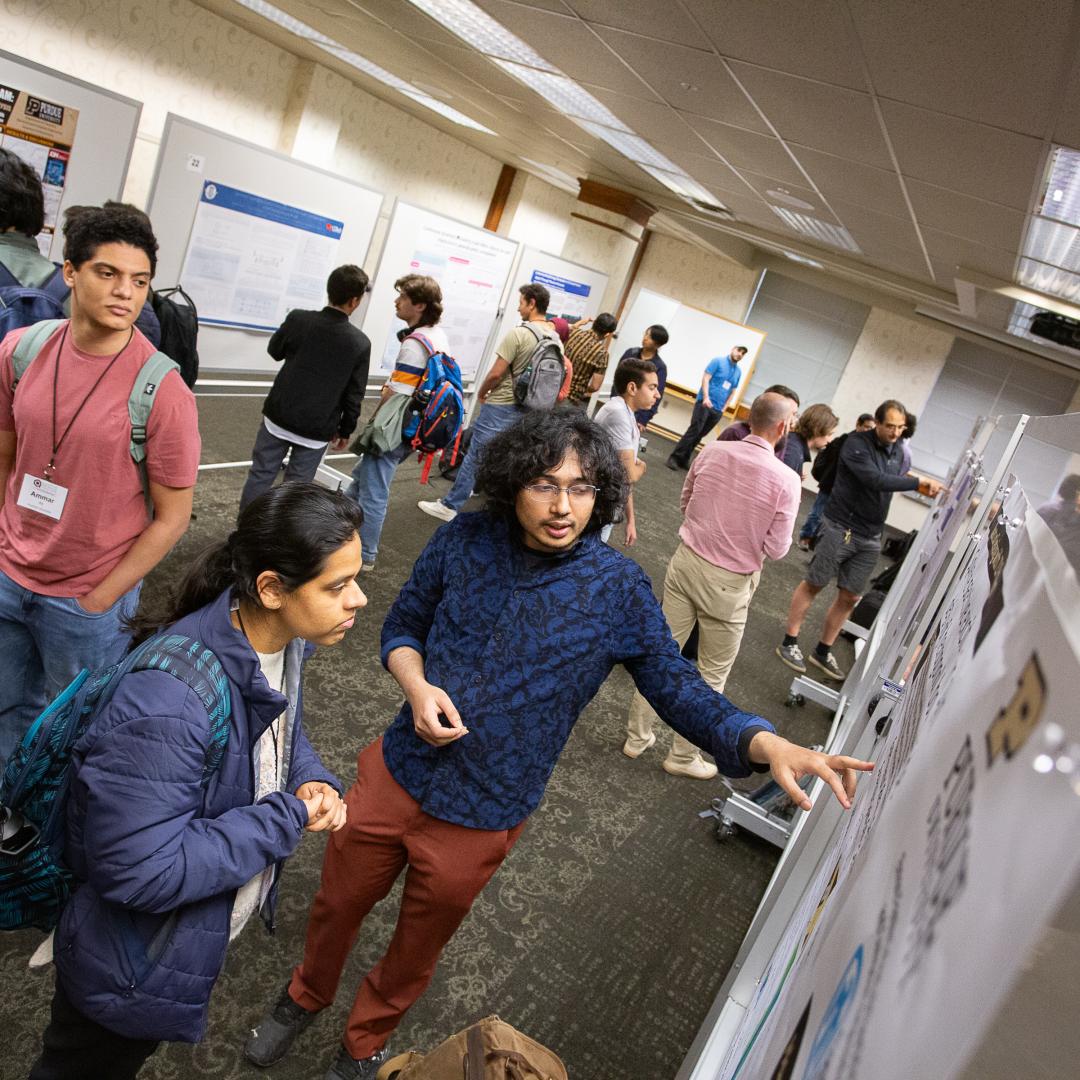Filter News
Area of Research
- Biology and Environment (22)
- Building Technologies (3)
- Clean Energy (23)
- Climate and Environmental Systems (1)
- Computational Biology (1)
- Computational Engineering (1)
- Computer Science (4)
- Electricity and Smart Grid (1)
- Functional Materials for Energy (1)
- Fusion and Fission (1)
- Materials (5)
- National Security (1)
- Neutron Science (2)
- Supercomputing (5)
News Type
News Topics
- (-) Biology (24)
- (-) Buildings (24)
- (-) Machine Learning (12)
- 3-D Printing/Advanced Manufacturing (49)
- Advanced Reactors (18)
- Artificial Intelligence (21)
- Big Data (18)
- Bioenergy (21)
- Biomedical (15)
- Biotechnology (3)
- Chemical Sciences (21)
- Clean Water (13)
- Climate Change (28)
- Composites (13)
- Computer Science (55)
- Coronavirus (15)
- Critical Materials (13)
- Cybersecurity (9)
- Decarbonization (12)
- Energy Storage (47)
- Environment (58)
- Exascale Computing (4)
- Frontier (4)
- Fusion (17)
- Grid (23)
- High-Performance Computing (23)
- Hydropower (6)
- Irradiation (3)
- Isotopes (13)
- ITER (4)
- Materials (68)
- Materials Science (53)
- Mathematics (1)
- Mercury (3)
- Microscopy (20)
- Molten Salt (6)
- Nanotechnology (24)
- National Security (10)
- Net Zero (2)
- Neutron Science (41)
- Nuclear Energy (34)
- Partnerships (6)
- Physics (10)
- Polymers (14)
- Quantum Computing (6)
- Quantum Science (14)
- Security (4)
- Simulation (11)
- Software (1)
- Space Exploration (11)
- Statistics (1)
- Summit (8)
- Sustainable Energy (53)
- Transformational Challenge Reactor (1)
- Transportation (46)
Media Contacts
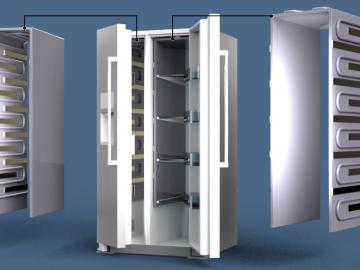
A technology developed by Oak Ridge National Laboratory works to keep food refrigerated with phase change materials, or PCMs, while reducing carbon emissions by 30%.
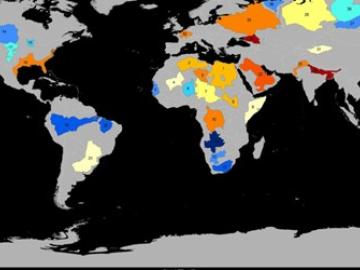
Groundwater withdrawals are expected to peak in about one-third of the world’s basins by 2050, potentially triggering significant trade and agriculture shifts, a new analysis finds.
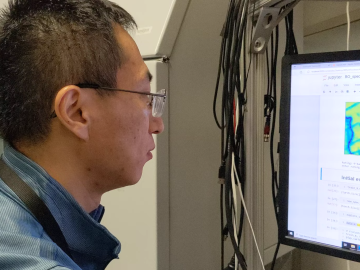
To capitalize on AI and researcher strengths, scientists developed a human-AI collaboration recommender system for improved experimentation performance.
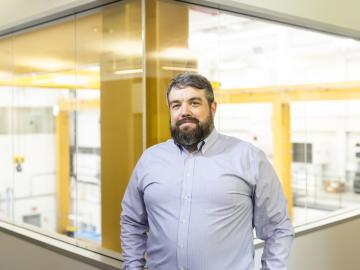
The American Society of Heating, Refrigeration and Air-Conditioning Engineers, or ASHRAE, selected Jason DeGraw, a researcher with ORNL, as one of 23 members elevated to Fellow during its 2024 winter conference.
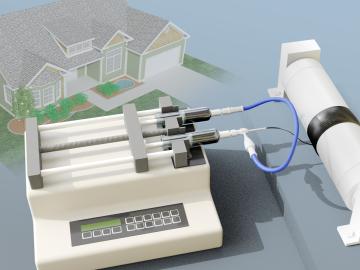
ORNL researchers have developed a novel way to encapsulate salt hydrate phase-change materials within polymer fibers through a coaxial pulling process. The discovery could lead to the widespread use of the low-carbon materials as a source of insulation for a building’s envelope.
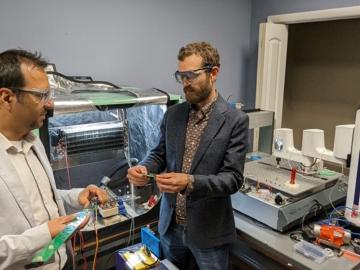
Four ORNL teams and one researcher were recognized for excellence in technology transfer and technology transfer innovation.
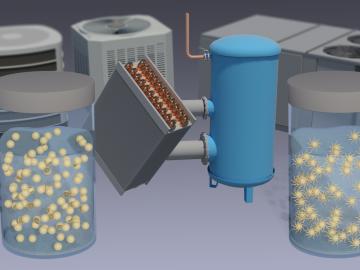
ORNL researchers demonstrated that an additive made from polymers and electrolytes improves the thermal performance and stability of salt hydrate phase change materials, or PCMs, a finding that could advance their integration into carbon-reducing heat pumps.
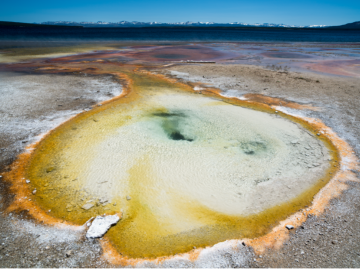
Oak Ridge National Laboratory scientists studied hot springs on different continents and found similarities in how some microbes adapted despite their geographic diversity.
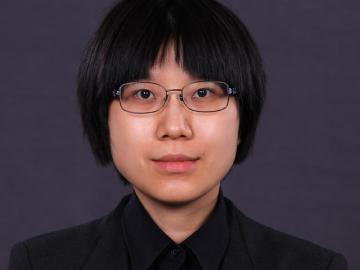
Yaoping Wang, postdoctoral research associate at ORNL, has received an Early Career Award from the Asian Ecology Section, or AES, of the Ecological Society of America.
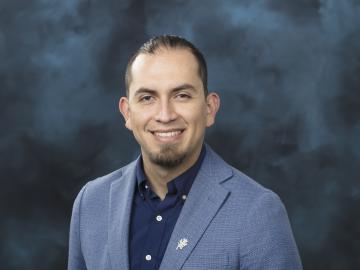
Bryan Maldonado, a dynamic systems and controls researcher at ORNL, has been recognized by the 2023 Hispanic Engineer National Achievements Awards Conference, or HENAAC, with the Most Promising Engineer Award.



